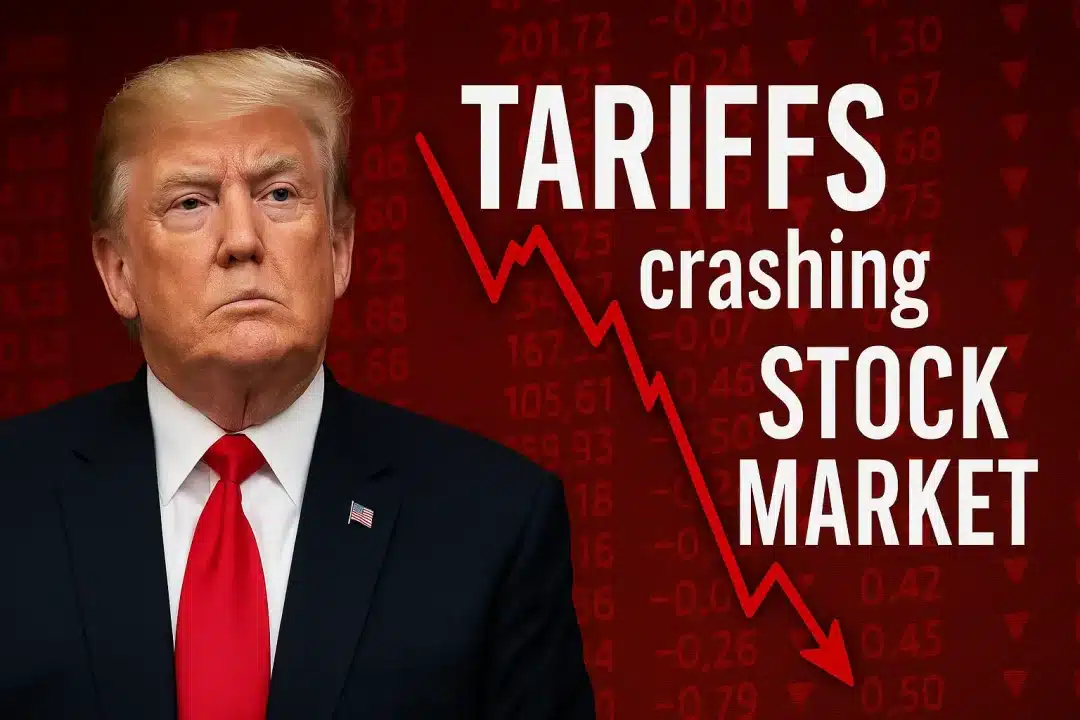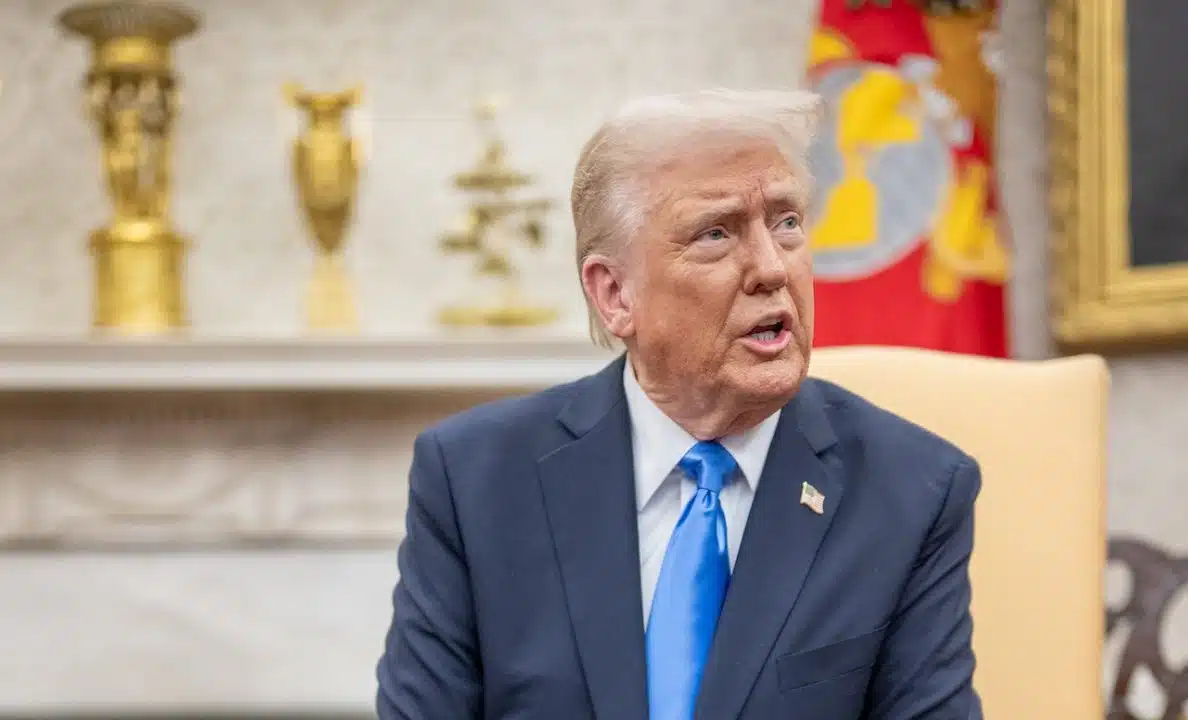
Global markets are reeling, economists are alarmed, and American consumers are bracing for price hikes. The catalyst? Former President Donald Trump’s sweeping new tariffs, which he claims are aimed at strengthening the U.S. economy. But critics warn these tariffs may be less about economics and more about consolidating political power.
Trump’s latest round of tariffs, introduced with a celebratory tone he dubbed “Liberation Day,” has instead triggered financial panic. The S&P 500 plunged 10% in just 48 hours, wiping out billions in retirement savings. Federal Reserve Chair Jerome Powell issued a sobering warning: the tariffs will likely fuel inflation and slow economic growth.
Markets aren’t buying Trump’s pitch. And neither are economists. But the bigger question looms — what is Trump’s endgame?
The Economic Reality of Tariffs
Trump has defended his tariff policies by claiming they will raise revenue and incentivize domestic manufacturing, thereby avoiding tariffs altogether. “We’ll make it here, tariff-free,” he proclaimed in a recent speech. But economists across the political spectrum argue that’s a fundamental misunderstanding of how tariffs work.
“Tariffs are essentially a tax,” said Mark Zandi, chief economist at Moody’s Analytics. “And like all taxes on imports, they’re paid by American consumers and businesses, not by foreign governments.” Everyday items — from smartphones to groceries — are expected to get more expensive as a result.
Contrary to Trump’s predictions, history suggests the economic benefits he promises rarely materialize. Instead, tariffs often spark retaliatory measures, disrupt supply chains, and inflate consumer prices. The current market downturn reflects deep skepticism about the policy’s wisdom — and its consequences.
Congressional Oversight Sidestepped
Under the U.S. Constitution, the power to impose tariffs lies with Congress. Historically, that authority has been delegated to the president only in cases of national emergency. Trump’s unilateral action has reignited fierce debate on Capitol Hill about executive overreach.
“This is a five-alarm fire,” said Sen. Angus King (I-Maine), who caucuses with Democrats. “There’s no national emergency here. What Congress needs to do is pull that power back.”
King isn’t alone. Lawmakers from both parties are expressing concern that Trump is stretching the bounds of presidential power to dangerous levels.
Tariffs as a Political Weapon?
More troubling, some fear Trump’s tariff strategy is less about economic growth and more about political control. Sen. Chris Murphy (D-Conn.) offered a chilling analysis, arguing that tariffs are being used as a “super dangerous political tool.”
Murphy posted a detailed critique on social media, drawing parallels between Trump’s tactics and historical abuses of taxation by monarchs and autocrats.
“Our founders gave Congress the power of the purse to prevent a president from using spending and taxation as a tool of coercion,” Murphy wrote. “Trump is subverting that framework by using tariffs to force loyalty from private industry and public institutions.”
According to Murphy, the tariffs are not designed to promote U.S. manufacturing or raise government revenue. Instead, he alleges they are being weaponized to extract political concessions from corporations, universities, and even state and local governments.
“This is how democracies die,” Murphy warned. “Industry leaders may soon find themselves pressured to offer public endorsements of Trump’s policies, contribute to his political campaigns, or suppress dissent within their organizations — all in exchange for tariff relief.”
A Slide Toward Autocracy?

If these warnings hold merit, the implications stretch far beyond the stock market. Critics say Trump’s misuse of tariff authority could be part of a broader attempt to dismantle institutional checks and balances.
“The structural collapse of our system, where power is basically being given to one person — I don’t care if it’s the Archangel Gabriel — it’s dangerous,” Sen. King told The Washington Post. “And that’s the moment we’re in.”
Such concerns echo broader fears about democratic backsliding in the United States. Political analysts note that the use of economic tools to compel political loyalty mirrors patterns seen in authoritarian regimes, not liberal democracies.
What Comes Next?
As the markets continue to churn and the political fallout unfolds, one thing is clear: the Trump tariffs are not just an economic issue — they are a constitutional and democratic crisis in the making.
The stakes are enormous. At a time when the global economy remains fragile and American institutions face deep polarization, the deployment of tariffs as both policy and political weapon raises urgent questions about the future of U.S. governance.
For now, Americans are left to watch their retirement accounts shrink, prices rise, and uncertainty grow — wondering whether this is the cost of economic strategy, or the price of a creeping autocracy.
